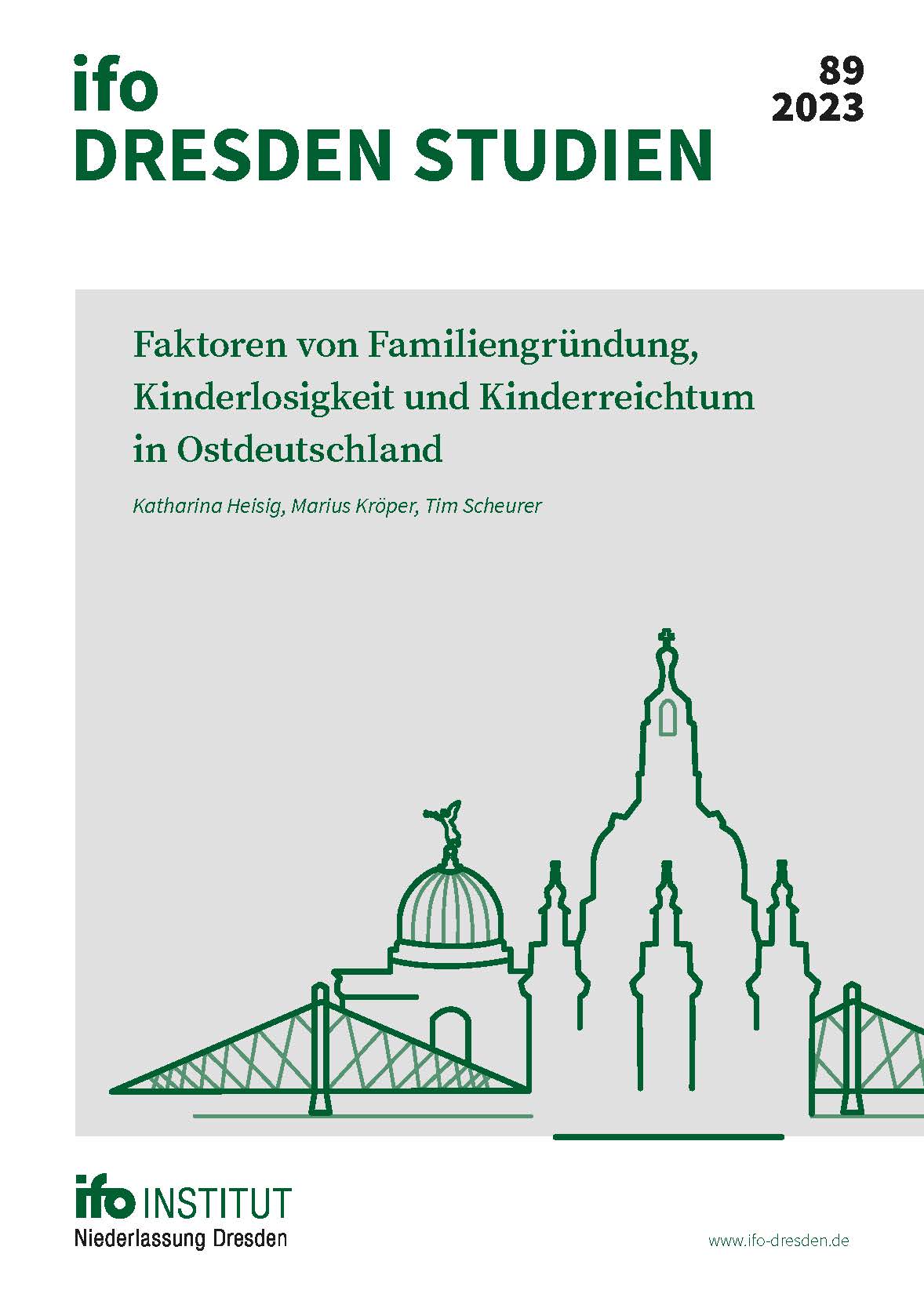Faktoren von Familiengründung, Kinderlosigkeit und Kinderreichtum in Ostdeutschland
ifo Institut, Dresden, 2023
ifo Dresden Studien / 89

Germany is in the midst of a demographic challenge. This might be mitigated by strengthening the framework for families in general and family formation in particular. The focus of this study is Saxony and the eastern German states. This study examines first, which factors influence people to form a family. It also examines which factors favor multiple-child families. Second, we want to answer questions regarding childlessness. In particular, we investigate why adults decide against starting a family, and which factors influence childlessness among adults older than 45 years. The study focuses less on monetary and structural factors, which have already been widely studied, but more on psychosocial factors, which have received less attention so far.
Our results show that the most important psychosocial factors for fertility behavior in East Germany are the following: the ideal number of children, the share of friends and acquaintances with children, and the relative importance of hobbies, friends, and one’s occupation. These factors are equally relevant for women and men.
The analysis also revealed that perceived costs of children are relevant, as well as an individual’s attitudes towards gender roles and the degree of a mother’s or father’s family-orientation. Subjectively perceived life satisfaction and satisfaction with the family may also play a role. However, we find only limited effects for these factors with higher relevance for women.